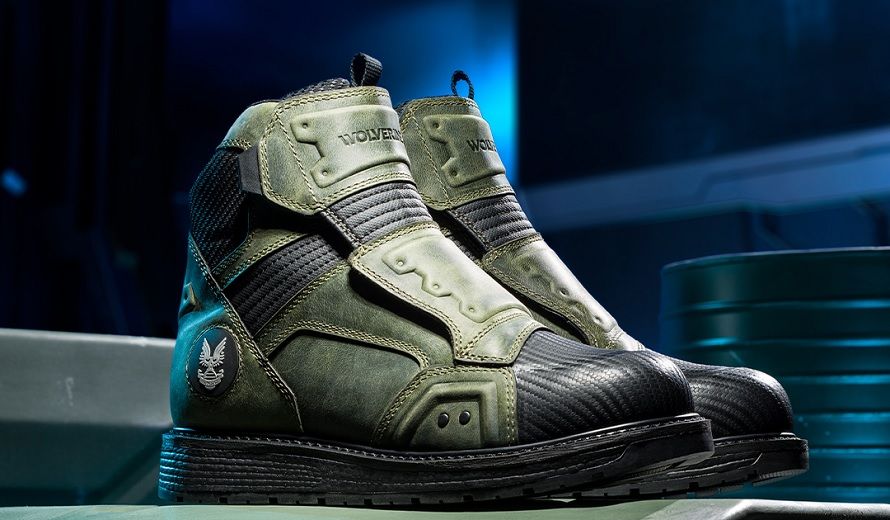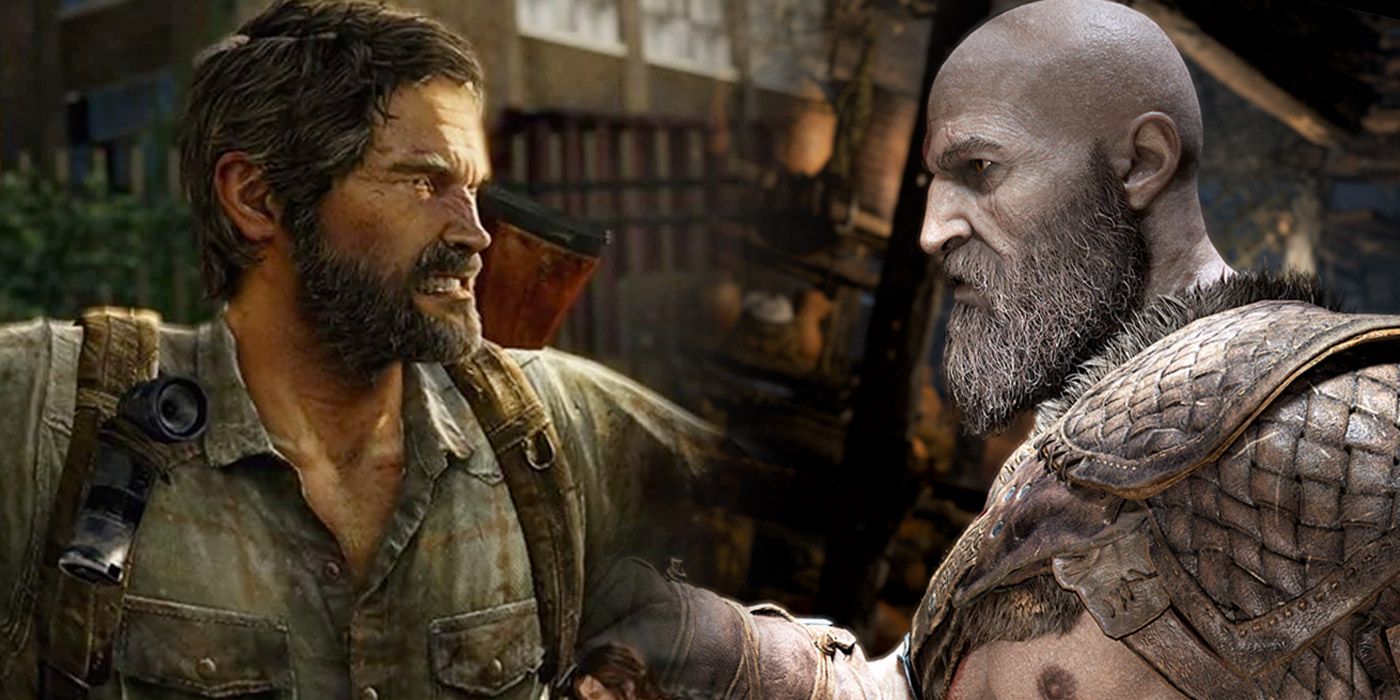
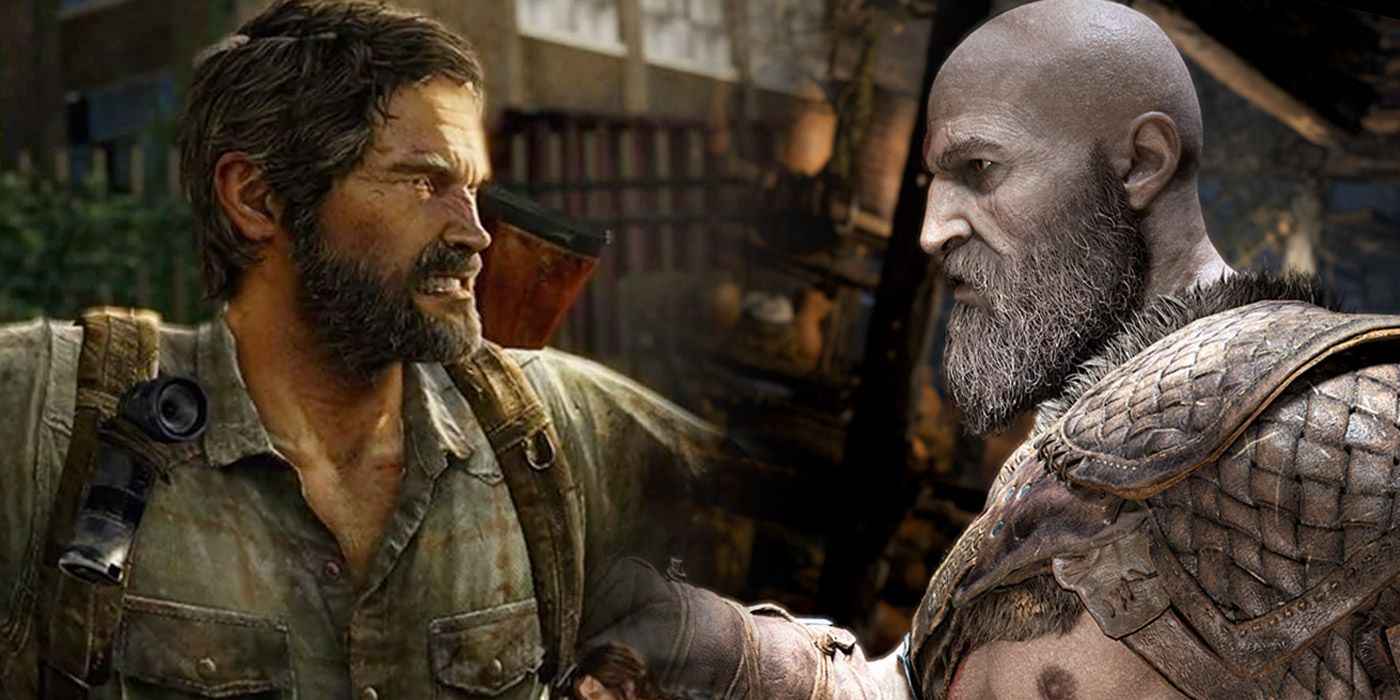
Naughty Dog's The Last of Us and Sony Santa Monica's God of War are two of the best narrative-driven experiences in modern gaming. Both games are immaculate works of art with complex characters that are genuinely worth empathizing and rooting for, and for that, both have won numerous accolades.
The Last of Us and God of War are quite similar when it comes to narrative progression. This extends to the gameplay as well, and both games use tried and tested dynamics with character roles that are quite compelling, and both are great for it. Despite such similarities, it's not reflective of unoriginal content in any way whatsoever.
RELATED: The Last of Us 3: Where Ellie's Story Could Go Next
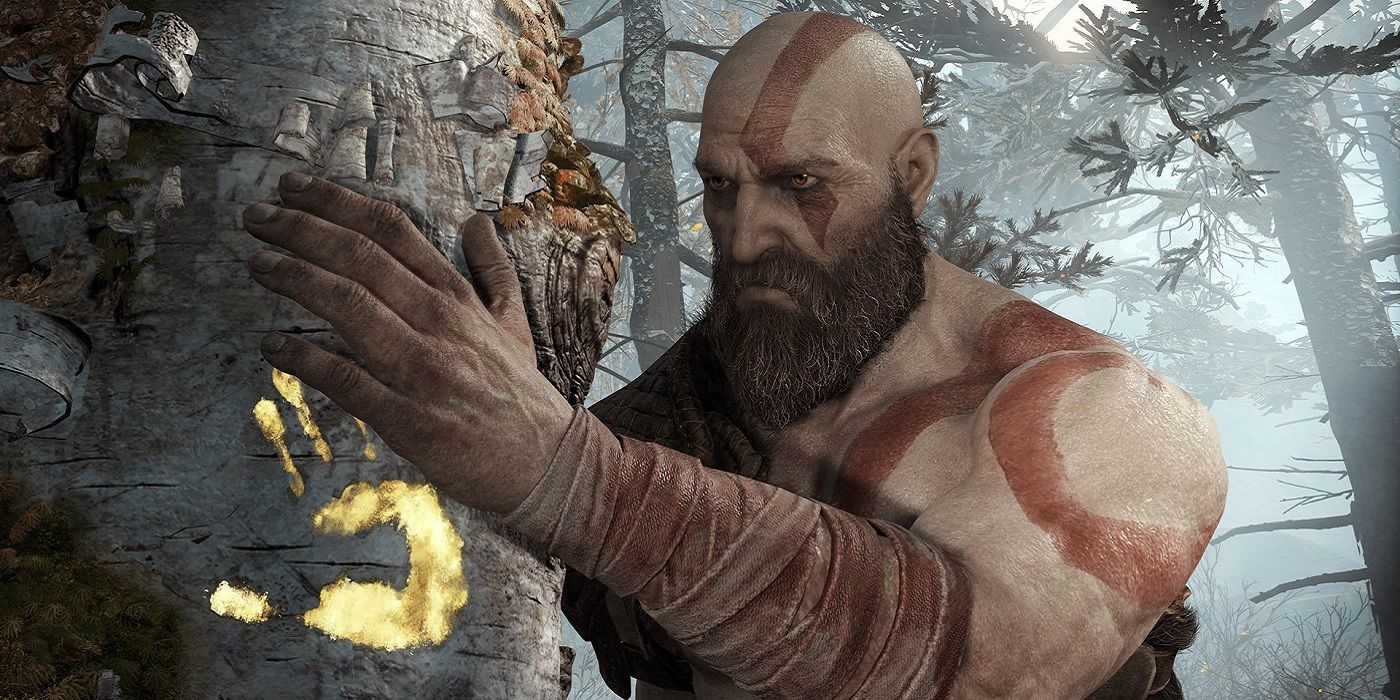
God of War and The Last of Us revolve around an integral theme of fatherhood, as protagonists Kratos and Joel are both cynical personalities, just going through the motions without much in the name of feelings. Joel's cynical nature can be owned to the oppressive world of The Last of Us, as well as the untimely and remorseful death of his daughter Sarah. Kratos, on the other hand, is a violent and unemotional father running far away from his dark past in a new land (and mythology).
Both have pretty compelling backstories, which lends them a unique charm and makes them easy to empathize with, even when Joel makes some immoral decisions. Joel and Kratos both hate themselves for such behavior and long for redemption from this cynical path of life. This quest for redemption forms the basis of the stories, and both are successful in earning that very redemption by the end of the game.
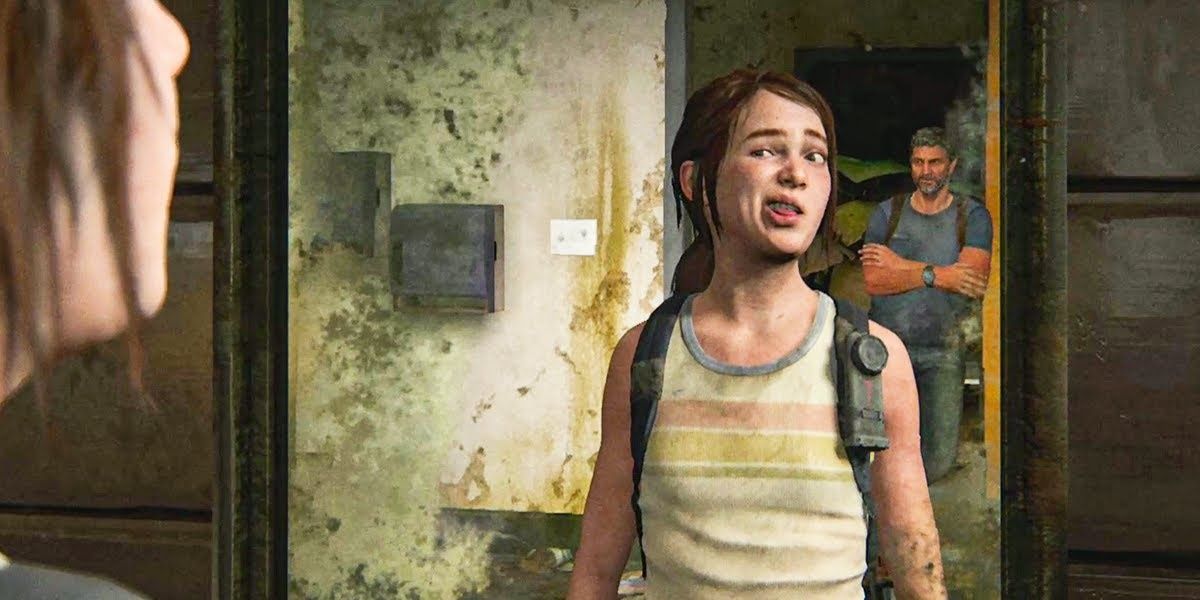
This redemption is carried in large parts by their companions, Kratos' son Atreus, and Joel's surrogate daughter Ellie. Both Joel and Kratos are quite protective of Ellie and Atreus respectively, which does fuel some immoral reactions during their quests. Despite Kratos being a real father to Atreus, they don't start on the best of terms. Joel agrees to travel with Ellie for his personal gain and behaves in his usual fashion at the very start.
God of War and The Last of Us both do a masterful job at realizing the companions, as both can be likable and rash at moments. Both of them are put in circumstances they clearly aren't prepared for, and emotional outbursts and pure innocence bring some great depth to these characters. Of course, such masterful writing is also brought magnificently to life by great motion capture and voice work from Ashley Johnson as Ellie and Sunny Suljic as Atreus.
RELATED: The Last of Us 2: Why a Team Abby or Team Ellie Mentality Doesn't Make Sense
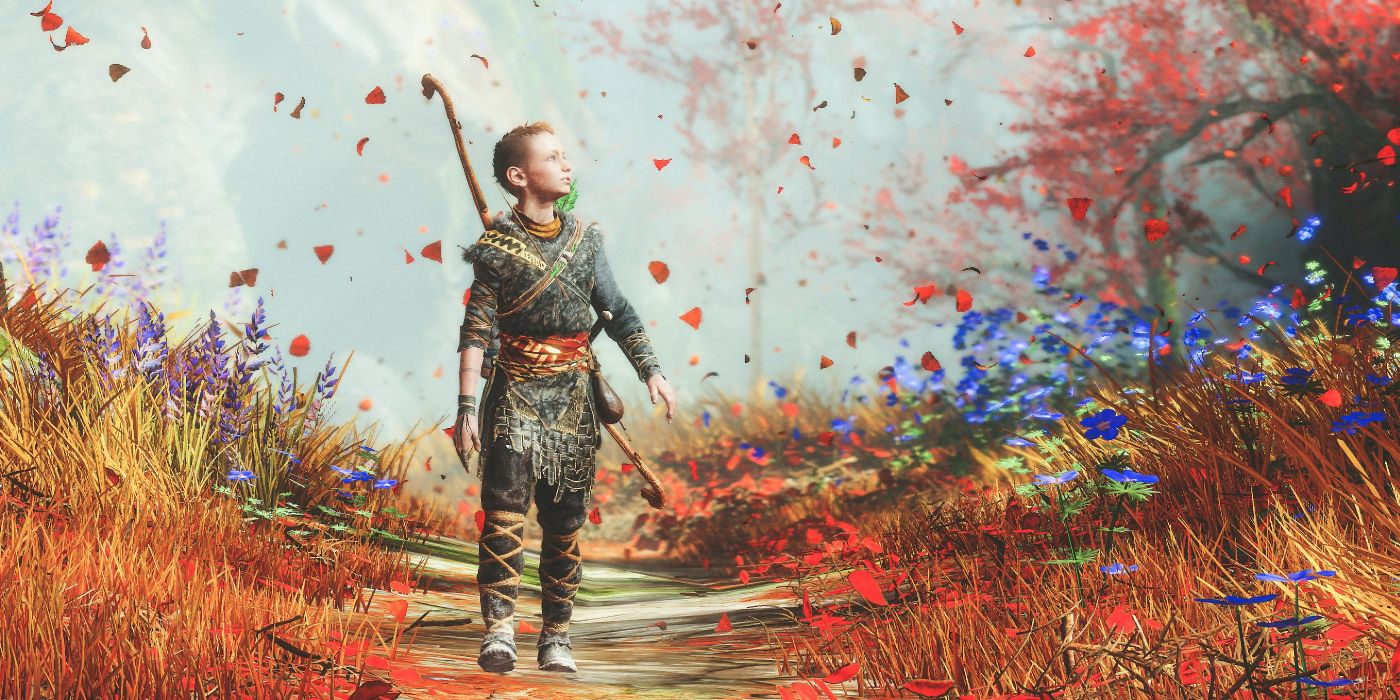
Travel is another recurring theme in Naughty Dog and Santa Monica's magnum opuses. Both games feature daunting journeys across perilous worlds, and the duos must cooperate and learn to understand and empathize with each other to complete them. Motivation plays a great role in this regard, and both games do a great job at legitimizing the high-stakes of the journey with valid reasons.
Joel wants to protect Ellie and end the cordyceps virus that took away all of his loved ones. Ellie wants her immunity from the virus to mean something, and both are extremely determined to take a trek across the United States — no matter the cost. Kratos' journey to the highest peak in Jotunheim is the fulfillment of his wife's last wishes who helped him start afresh in a new land. Atreus' affection for her mother compels him to take this journey, although a threat from the Aesir Gods requires Kratos to take him along for the ride.
Throughout the journey, both duos face a number of ups and downs, with one helping the other to get back on his/her own two feet. This forms the basis for pretty compelling character arcs, as both face losses and tense situations which develops the relationship between the companions and helps the protagonists get one with their lost humanity.
Joel becomes incredibly attached to Ellie and is ready to forgo everything they fought so hard for just to save his surrogate daughter. In a way, he reunites with his humanity, even though he does commit some horrendous murders to get there. Kratos frees himself from his past, untangling the cloth bracers that hide the marks of his Blades of Chaos. He reveals his Spartan past to Atreus, who also undergoes a cyclic change in his character throughout the course of the story.
RELATED: God of War on PS Now May Be a Good Sign for Ragnarok's Development
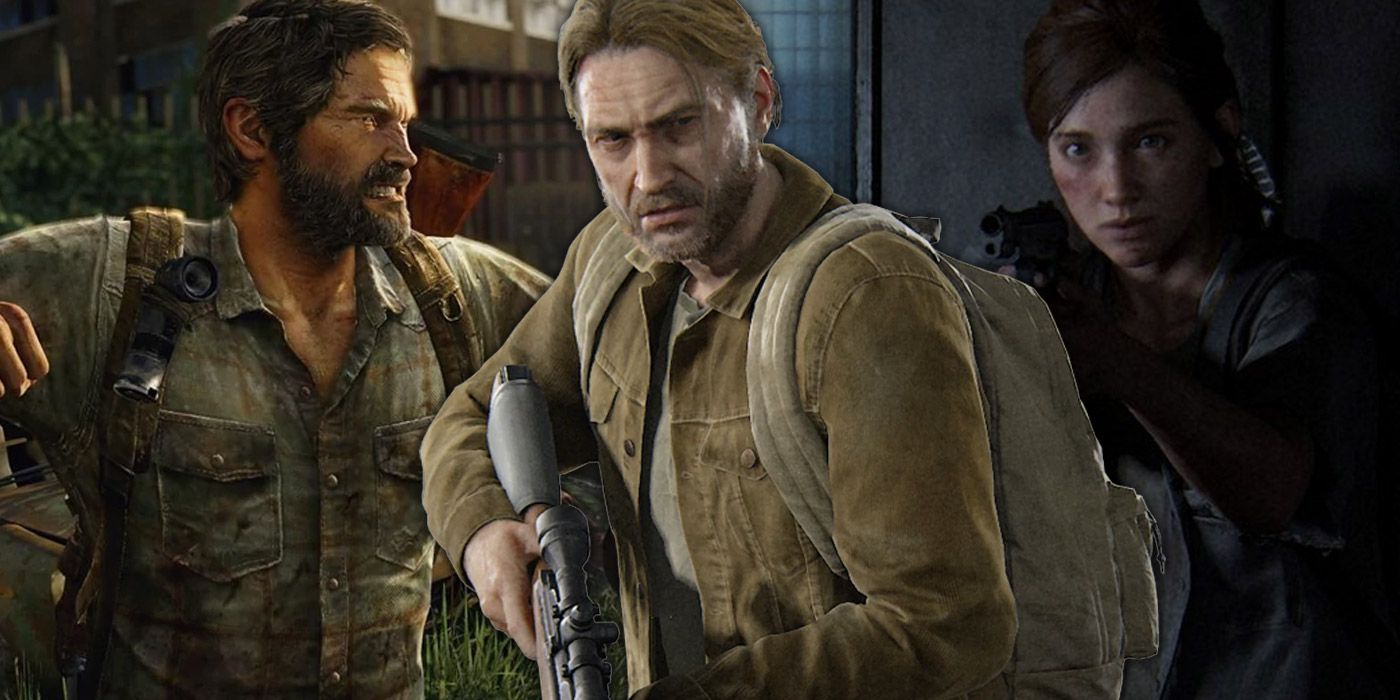
Given that both God of War and The Last of Us are two of the most highly valuable PlayStation exclusives of recent memory, it's understandable that having a multitude of similarities in the narrative rubbed some fans the wrong way. Grizzled characters like Kratos and Joel are ripe for garnering sympathy, which is increased to an even higher degree innocent companions who are too fragile for such daunting environments.
Of course, that's not reflective of the quality and ultimately, that is what matters. Both games have tons of heart within their characters and world-building, and the passion with which each element is carried shines through in a bright fashion. Naughty Dog's follow-up to the original, The Last of Us 2 showcased an even meatier narrative with its dual protagonists and an extended game length without skimping out on minute details and complexities. Santa Monica is currently hard at work on the God of War: Ragnarok sequel, and from what's known from the myths — fans should be ready for a ton of heartbreak. That wait is soon coming to an end, and fans can't wait to dive back into Santa Monica's twisted-yet-true version of the Norse myths.
MORE: Horizon Forbidden West Delay is a Huge Opportunity for Xbox

